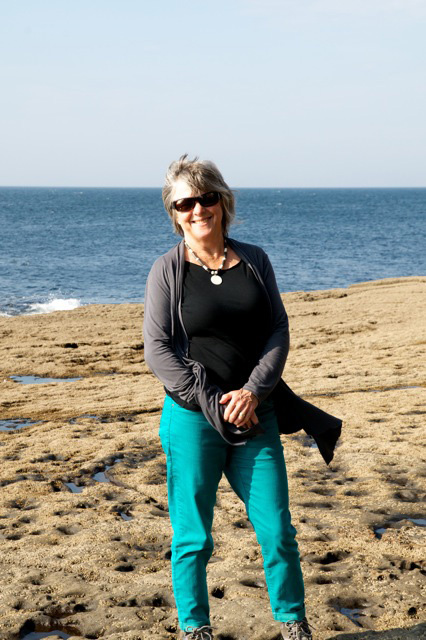Mediation and Facilitation
Over the years, I have been lucky enough to be involved in mediations on almost every aspect of conflict imaginable, both large and small. I have seen mediation’s power to empower and to change people’s lives for the better by bringing closure to long-standing conflicts, by creating a space for apology and forgiveness, for righting wrongs, and letting go of old grievances.
Though no longer mediating, I continue to work in a limited way with university university academic leadership in conflict analysis and assessment as a coach/mentor. This work included various ways of reporting out; facilitating leadership sessions or faculty meetings/retreats; intervening directly with parties as a mediator; private coaching of individuals to improve their “conflict fluency”; working with university colleagues in tough situations; and other forms of conflict engagement.
There are times when mediation is not the best choice of forum for a particular dispute. Conflict is “high context” work and each matter must be considered and assessed for appropriateness, safety, timeliness and potential for settlement before mediation is entered into. My respect for good process continues to grow over time. I appreciate that parties in collaborative approaches are expected to be able to resolve their own problems, and that mediation provides a safe “container” and assistance for them to do so.
My approach has always been facilitative, with a problem-solving orientation.
In 2013, I received Mediate BC’s Award (with Carole McKnight) for “Excellence in Mediation”.
Though no longer mediating, I continue to work in a limited way with university university academic leadership in conflict analysis and assessment as a coach/mentor. This work included various ways of reporting out; facilitating leadership sessions or faculty meetings/retreats; intervening directly with parties as a mediator; private coaching of individuals to improve their “conflict fluency”; working with university colleagues in tough situations; and other forms of conflict engagement.
There are times when mediation is not the best choice of forum for a particular dispute. Conflict is “high context” work and each matter must be considered and assessed for appropriateness, safety, timeliness and potential for settlement before mediation is entered into. My respect for good process continues to grow over time. I appreciate that parties in collaborative approaches are expected to be able to resolve their own problems, and that mediation provides a safe “container” and assistance for them to do so.
My approach has always been facilitative, with a problem-solving orientation.
In 2013, I received Mediate BC’s Award (with Carole McKnight) for “Excellence in Mediation”.
Facilitation
I have done a great deal of facilitation over the years and learned so much “in the trenches” that I developed and taught several courses for the Justice Institute of BC on the subject. To me, good facilitation lives up to its name, “to make easy”. The facilitator is trying to make the work of the group easy, no small task when the issues are thorny, and parties are not working collaboratively. Because the numbers are usually bigger, the facilitator uses a lighter touch with the group’s conflict dynamics and good process to encourage communication, sharing of information and problem-solving.
Mediation & Facilitation – Work Experience
Areas I have mediated include:
Workplace – academia, government & private
Estate litigation and planning disputes
Family - separation & divorce (with counsel) - property-based matters
- intergenerational disputes
- elder issues, sibling disputes
- common law and co-habitation issues
Historical (institutional & private) sexual abuse
Wrongful death suits
Intercultural disputes
Examples of Facilitations
Academic communities
Facilitation of retreats, strategic planning meetings, leadership problem-solving around conflict, delivery of “conflict audit” report to various faculties.
Aboriginal Summit - Fort Simpson, Northwest Territories - team facilitation of 5 day discussion of proposed gas pipeline impacts and benefits, with all 6 NWT First Nations governments (2004). (Sponsored by INAC)
Workplace and community-based facilitations
Conflict analysis, private sessions, and community meetings with organizations & groups in conflict
In 2010, Sally was recognized by the Comox Valley Community Justice Centre for more than 10 years of volunteer service as a facilitator.
I have done a great deal of facilitation over the years and learned so much “in the trenches” that I developed and taught several courses for the Justice Institute of BC on the subject. To me, good facilitation lives up to its name, “to make easy”. The facilitator is trying to make the work of the group easy, no small task when the issues are thorny, and parties are not working collaboratively. Because the numbers are usually bigger, the facilitator uses a lighter touch with the group’s conflict dynamics and good process to encourage communication, sharing of information and problem-solving.
Mediation & Facilitation – Work Experience
Areas I have mediated include:
Workplace – academia, government & private
Estate litigation and planning disputes
Family - separation & divorce (with counsel) - property-based matters
- intergenerational disputes
- elder issues, sibling disputes
- common law and co-habitation issues
Historical (institutional & private) sexual abuse
Wrongful death suits
Intercultural disputes
Examples of Facilitations
Academic communities
Facilitation of retreats, strategic planning meetings, leadership problem-solving around conflict, delivery of “conflict audit” report to various faculties.
Aboriginal Summit - Fort Simpson, Northwest Territories - team facilitation of 5 day discussion of proposed gas pipeline impacts and benefits, with all 6 NWT First Nations governments (2004). (Sponsored by INAC)
Workplace and community-based facilitations
Conflict analysis, private sessions, and community meetings with organizations & groups in conflict
In 2010, Sally was recognized by the Comox Valley Community Justice Centre for more than 10 years of volunteer service as a facilitator.
